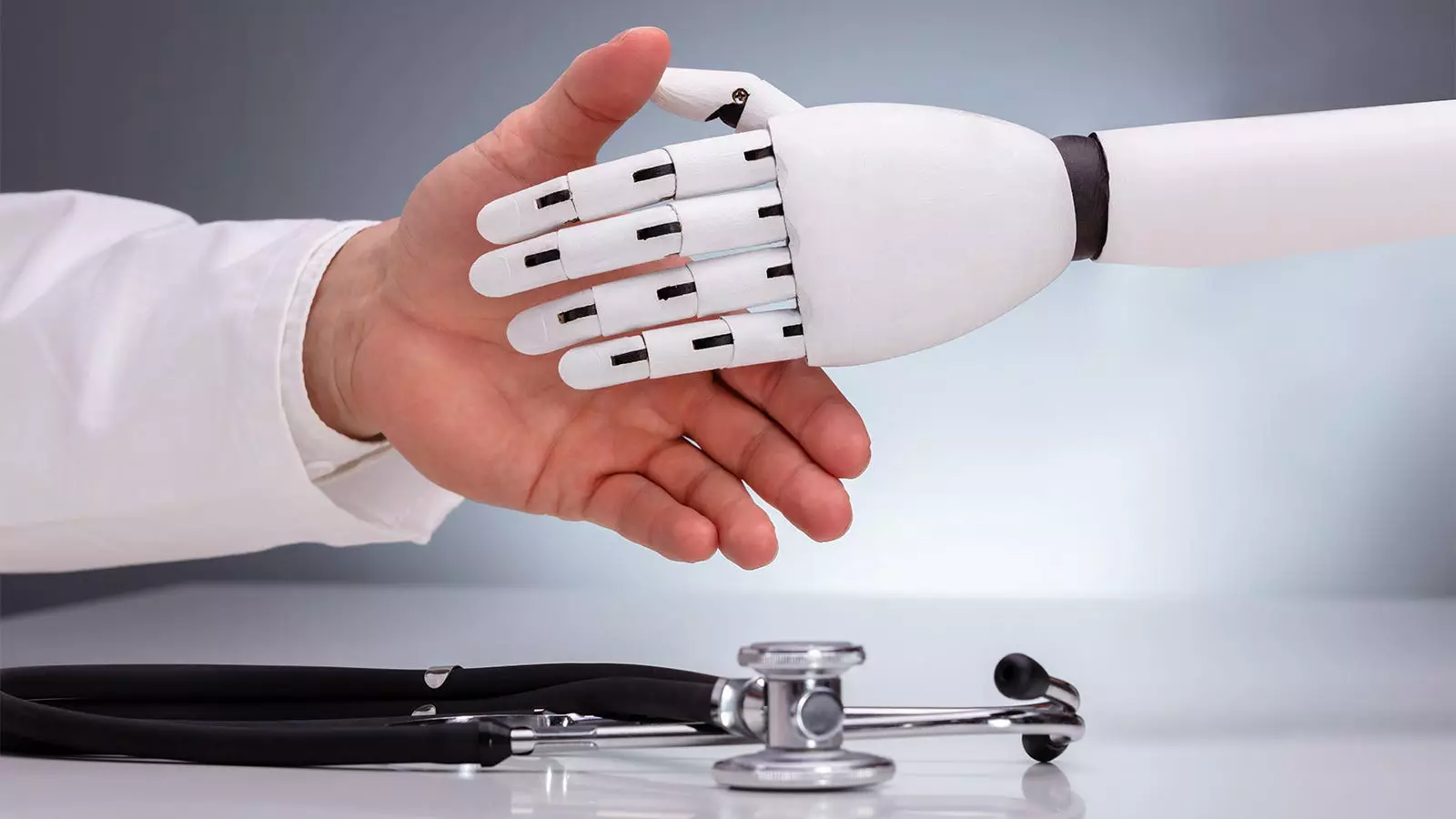The rise of artificial intelligence (AI) solutions in healthcare has sparked questions about the potential of AI replacing human physicians. While AI excels in diagnostic accuracy and data processing, it still faces challenges related to trust, human interaction, and oversight. Instead of viewing AI as a replacement for doctors, it is essential to redefine the AI-physician partnership to maximize their potential.
An innovative way to conceptualize the role of AI in healthcare is to consider it as a medical student in training. Similar to working with medical students, AI requires preparation, supervision, and continuous learning. AI can assist physicians by completing tasks, gathering information, and personalizing patient interactions. However, the presence of a licensed physician is crucial to oversee the AI’s work, identify errors, and ensure comprehensive patient care.
In a clinical setting, AI can enhance patient care by streamlining processes and facilitating communication between healthcare providers. AI can efficiently analyze patient data, summarize medical histories, and generate concise reports for physicians. By automating routine tasks, AI allows physicians to focus on delivering personalized care and making critical decisions that impact patient outcomes. Additionally, AI can support continuity of care by providing follow-up assistance and monitoring patient progress beyond hospital discharge.
By integrating AI into healthcare practices, organizations can enhance efficiency, accuracy, and patient outcomes. Viewing AI as a medical student encourages healthcare leaders to explore collaborative opportunities and leverage AI’s capabilities to improve clinical workflows. By embracing AI as a complementary tool rather than a replacement for human expertise, healthcare providers can enhance the quality of care delivery and optimize resource utilization.
As AI continues to evolve, medical training programs may need to adapt to include AI education and skill development. Medical students of the future may need to engage with AI tools, refine clinical decision-making skills, and explore new methodologies for interacting with AI-generated insights. Prompt engineering and ongoing evaluation of AI performance will be essential components of medical training, ensuring that AI integration aligns with the highest standards of patient care.
The evolution of AI in healthcare presents unique opportunities for collaboration and innovation. By fostering a collaborative approach to AI integration, healthcare providers can harness the full potential of AI technology to improve patient care and clinical outcomes. While the future of AI in healthcare holds promise, it is essential to proceed with caution, evaluate outcomes, and prioritize patient safety and well-being above all else.
The future of AI in healthcare lies in collaborative partnerships between AI technology and human physicians. By redefining the role of AI as a medical student in training, healthcare organizations can leverage AI’s capabilities to enhance patient care, streamline clinical workflows, and improve overall healthcare outcomes. As we navigate the evolving landscape of AI in healthcare, it is essential to embrace a collaborative future that prioritizes patient-centered care and innovation in medical practice.

Leave a Reply